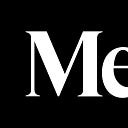Every 40 days, a language dies
👋 Welcome back to the Medium Newsletter
Issue #184: using your past to help your community, and replacing “what ifs” with “even ifs”
By Carly Rose Gillis
There are at least 7,000 languages people use to communicate in the world, but it’s estimated that 50% of them will be extinct by 2100 due to migration, discrimination, and climate change.
Another way of putting it: Every 40 days, a language dies.
To visualize what’s at stake, Morgan Wills of Kumu, a startup that specializes in data visualization tools, recently wrote on Medium about a map they made of endangered languages. When you visit it, hovering over each language reveals where they’re spoken and by how many people, and at the top you can select a few ways to filter it (but don’t miss the filter settings on the right side to really dig in).
This is an example of work related to the International Decade of Indigenous Languages, which the United Nations designated as the span of time between 2022 and 2032. Beyond just an honorific awareness campaign, the U.N. is using it as an opportunity to spread really useful tools to Indigenous communities in need of language protection.
Case in point: “Digital Initiatives For Indigenous Languages,” a whopping 193-page book chock full of resources for the holders of Indigenous languages and fascinating case studies for inspiration. For a bureaucratically produced document, it’s shockingly readable and full of fascinating stories — such as how a crowdsourced comic book featuring a baby tamale helped promote the Nahuatl languages of Central and South America to a new generation (major Gudetama vibes, iykyk).
A meta moment about language here: Language death is different than language change. Language change is natural, fluid, inclusive. The death of a language is often arrived at by means that are, as linguist Rebecca Ericson-Hua puts it, “forcible, traumatic, and — at the bare minimum — unjust.” Saving the languages of Indigenous people directly empowers communities razed by atrocities that had intent to exterminate them.
As Wills says:
“…language is so much more than just the words with which we communicate. The vocabulary, grammar, phrases, and modalities of a language create the lens through which we process the world. It’s the backdrop to culture, the sounds and signs through which we experience tradition and share stories. Ultimately, language is identity.”
What else we’re reading
- Many folks want to help, volunteer, mentor… but don’t know what to give that would really be helpful to contribute. “The answer lies in your most painful experiences, and how you overcame them.”
- A common online retort to people who don’t believe in climate science or vaccines is: “Well, science doesn’t care what you believe!” But quantum theorist Chris Ferrie argues that science is tremendously belief driven — most inventions and scientific truths begin with a daydream after all, and then often require something more than facts to be regarded as truth. An example from his story: I did not know that heliocentrism (Earth rotates around Sun) was met with derision by other scientists, not just religious leaders — and what actually pushed its acceptance was how it aligned with the aesthetics of symmetry that were popular at the time (essentially: it was “prettier” to believe, so that’s what really made it gain traction).
Your daily dose of practical wisdom
Shake yourself out of a doom spiral by replacing “What If” questions with “Even If” statements. It helps you refocus on plausible solutions instead of terrifying hypotheticals.
Deepen your understanding every day with the Medium Newsletter. Sign up here.
Edited and produced by Scott Lamb & Harris Sockel
Questions, feedback, or story suggestions? Email us: tips@medium.com
Read without limits or ads, fund great writers, and join a community that believes in human storytelling with membership.

